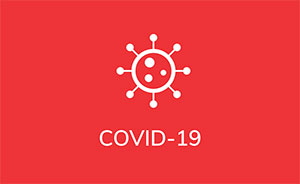There is more opinion than data at this point on vaccine efficacy in the immune-compromised, but that is rapidly changing as new study results are published almost daily. Stay tuned. What we do know with certainty is that there have been no significant safety concerns for CLL patients with any of the COVID-19 vaccines.
Here is an opinion from CLL expert Dr. Alan Skarbnik from Novant Health, Charlotte, NC concerning vaccination and testing for SARS-CoV-2 antibodies in CLL patients post-vaccine:
“An issue with antibody testing is the variability among tests. The most appropriate information would come from checking neutralizing antibodies that block the Spike-ACE2r interaction, but that is not widely available. With the more commonly available antibody tests for patients who are interested in checking their levels post-vaccination, I have been recommending the IgG-Spike (S) protein RBD site-specific antibody, since the nucleocapsid (N) IgG won’t really capture the response to mRNA based vaccines. Although a negative IgG-S-RBD test doesn’t necessarily mean a lack of vaccine response. Given the recently published findings of vaccine efficacy in patients with CLL who are currently on treatment, what I have been telling my patients (who are undergoing treatment or have had treatment in the past 6-12 months) is to not relax their social distancing and masking efforts even when vaccinated, and to wait for the vast majority of the population to be vaccinated before venturing out more. For untreated CLL patients, I have been a little more flexible. This just my personal opinion, for what it’s worth.”
Here are the thoughts of a well-known CLL researcher and clinician, Dr. Neil Kay, from Mayo Clinic, Rochester, MN:
“There is now sufficient information to decide on the best tests to check for antibody responses in CLL patients who do get vaccinated for development of humoral immunity to COVID. The reason for doing this test is that there is good data (recently published in Medrxiv, Khoury, March 2021) showing that there is, in otherwise healthy individuals, a strong correlation between neutralizing antibody titers and protection against infection for convalescent and vaccinated subjects. Even though patients with B cell malignancies (including CLL) are more likely to have a suboptimal response to vaccinations, it is still worth getting a vaccine with the hope that there will be some level of immune response as determined by the antibody testing. In my opinion, it is then important to know what an individual’s status is for the neutralization antibody, as there are now COVID antibody products available (and more on the way) that can be given in hopes of providing protection.”
And here is my commentary: Masks, Vaccines, Antibody Responses, and CLL Patients’ Way Back Into the World.
More to come.
Stay strong. We are all in this together.
Brian Koffman MDCM (retired) MS Ed
Co-Founder, Executive VP and Chief Medical Officer
CLL Society, Inc.



